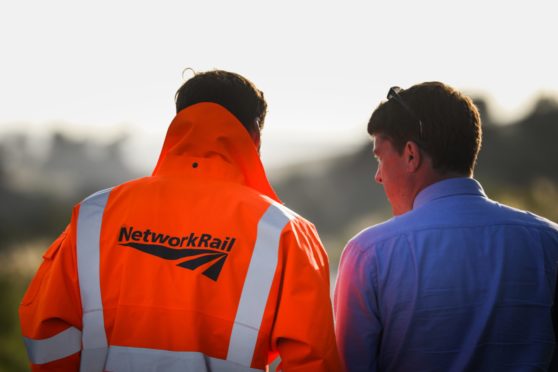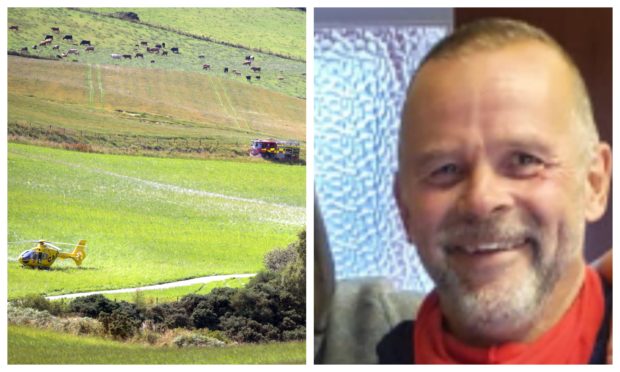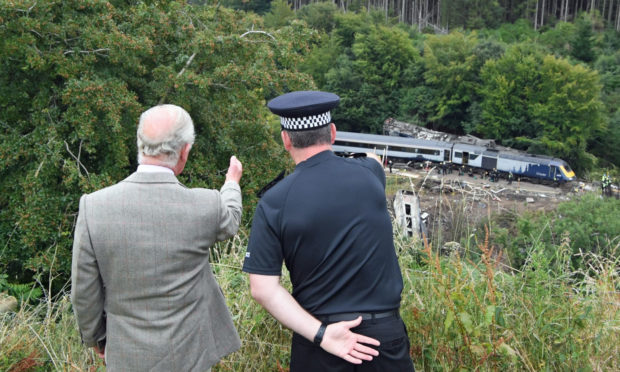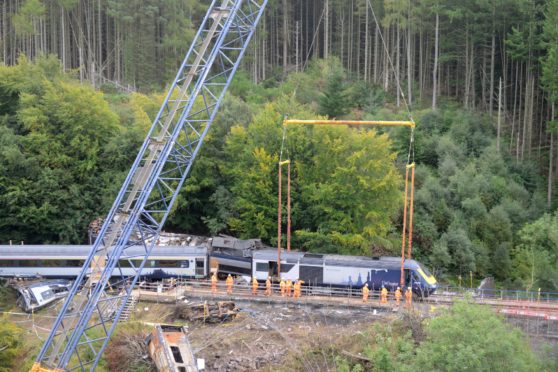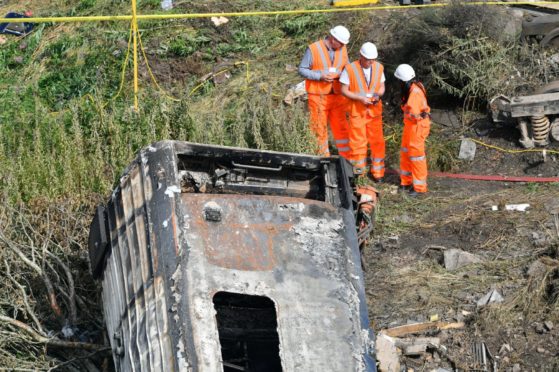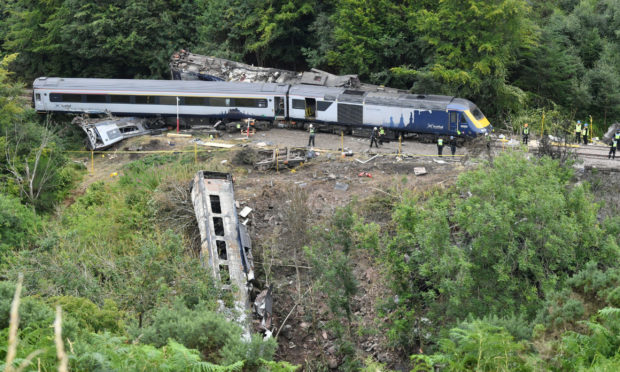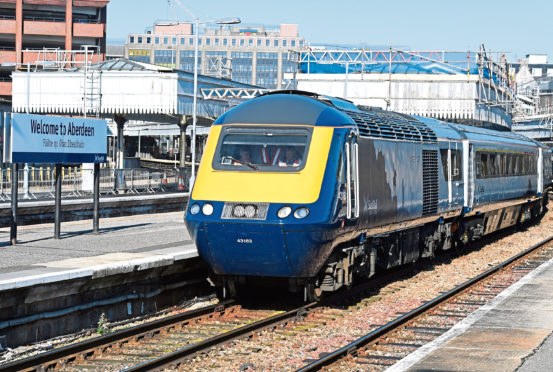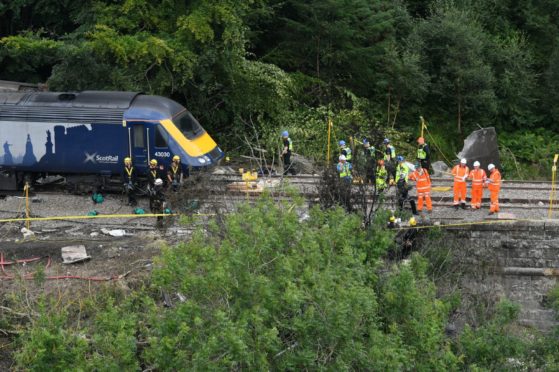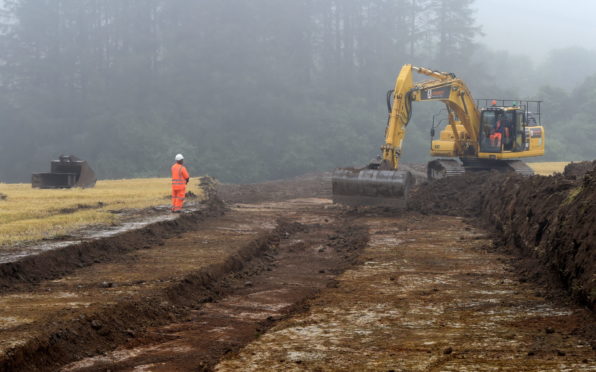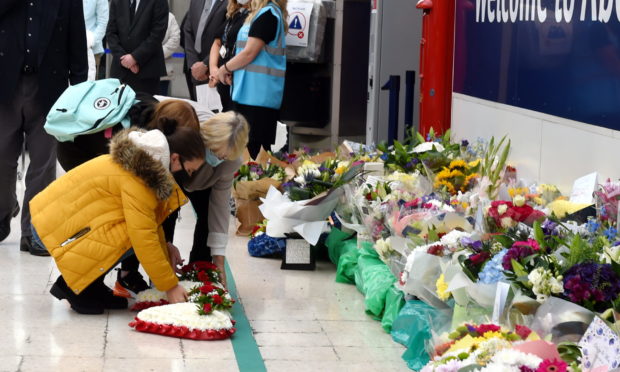A 2016 report involving Network Rail warned that adverse weather had the potential to cause “infrastructure damage, serious injury and even loss of life” and called for greater efforts to identify sections of track at higher risk of landslips.
The assessment, which included British Geological Survey, noted the number of reported landslides “increased dramatically” during periods of extreme rain and was created to give a high level overview of potential landslip hot-spots to Network Rail senior management.
It precedes a recent health and safety report by the Office of Rail and Road (ORR) that warned the body responsible for the tracks was struggling to keep up with extreme weather events such as those understood to be responsible for triggering the Stonehaven rail crash.
Scottish transport secretary Michael Matheson said yesterday that it was “reasonable to presume” that intense weather formed part of Wednesday’s disaster.
He added that the ORR report was an issue he is already pursuing with Network Rail.
It states that there were six times more flooding events on the UK’s railways in 2019-20 than during the previous 12 month period.
A spike in landslips was also noted.
The ORR said Network Rail’s efforts to address extreme weather and climate change was “not keeping up with the frequency and severity of these events”.
Mr Matheson said: “We have already experienced significant disruption to the Scottish rail network as a result of these localised intense weather events.
“Last year we had a major part of the West Highland Line washed away in an intense event, and the line to Mallaig was recently closed from a similar type of event.
“They are well aware of our views and we need to make sure we take forward the right types of mitigation to help us manage the challenge of these kinds of major localised weather events.
“One of the things I think we will see from the investigation is whether the pace of the mitigation work needs to be stepped up.
“We need to make sure that we are looking at how the changing weather patterns we’re experiencing can be better managed for our transport network.”
UK secretary of transport Grant Shapps said: “The Office of Road and Rail published a report, saying what we all know to be true – which is that the climate is changing.
“Flash-floods are increasing, the balmy summer we’ve been having, all of these things are factors.
“One of the things I’ve asked Network Rail to do immediately is to do a very quick resilience check to make sure there’s not another situation like this.
“I’ve ordered a report to be on my desk by September 1, where I want them to check the resilience of the whole Great Britain network with this specifically in mind, with a final report in the autumn.
“Clearly there are some obvious questions to ask, given the inclement and extreme weather about where the train went, why it came back, what the signalling was, and the speeds and all those other things, but that’s something I believe would be best left to the professionals to ask.”
When asked if global warming would be something he would be keen to prioritise in terms of the impact it could have on transport in the future, Mr Shapps said “very much so”.
